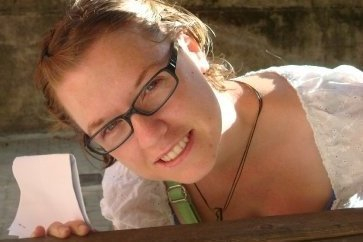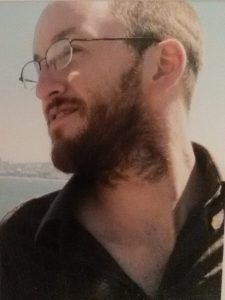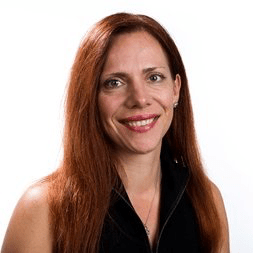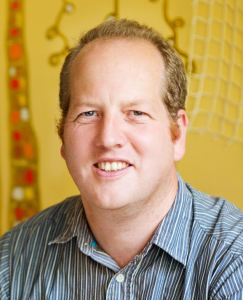This post is a collection of summaries from four different people who attended the IATEFL conference for the first time in Glasgow in 2017.
Shay Coyne
About me
I’m a freelance educational consultant specialising in young learners and teacher training & development.
Why I went
I joined IATEFL as I wanted to feel part of a professional group of EFL teachers, and after 3 years as a member I attended because I was a first time speaker and I thought it would be a great opportunity for me to learn and develop from the experience.
The conference
It was by far the best week of my professional career. The Young Learner and Teenager Special Interest Group (YLT SIG) Pre-Conference Event was amazing; the ideas being presented and promoted were things that I believe education to be about. I left the event inspired and motivated to try out these ideas. The YLT SIG allowed me to feel a part of a community of dedicated professionals and I really want to work closely with this SIG.
As a first time presenter I found the experience as a presenter both exciting and daunting. I was so lucky to have Jamie Keddie as my mentor, and his support and advice and presence were a decisive factor for me to be able to stand up in front of a 500-capacity auditorium and not let my nerves get the best of me. I have had positive feedback from my presentation, which is great.
What I enjoyed most was being able to see my EFL friends again and share stories and provide support for each other. I would love to collaborate more with these people as I feel I could learn so much from them, which for me summarises my first IATEFL experience, an experience which I am very excited about repeating again in 2018.
Kyle Dugan
About me
I’m a freelance EFL teacher and Cambridge ESOL speaking examiner in Varese, Italy. I blog about ELT — particularly learner autonomy and teacher development — at dynamiteelt.wordpress.com and I’m on Twitter @kyletdugan.
Why I went
I came to IATEFL this year because my much wiser fellow Dynamite blogger Lindsey Clark knew that successfully proposing a workshop was what I needed to force me to go! And it’s a good thing she did. It got me to pay up, fly to Glasgow, and discover the wonder of my first big ELT conference.
The conference
I think everybody says they go for the presentations but secretly hopes to make great new friends and even rub shoulders with some ELT stars. I got all that, and more.
But what was really great about the conference was meeting and hearing from teachers in many situations very different from my own — teachers contending with stifling bureaucracies, masterminding curriculums, adeptly using all kinds of tech, dealing with challenging issues in class or even living mostly off unregistered, untaxed income. You see the extremes of the profession and industry. On the whole it was very affirming to get a small but significant glimpse of the many thousands of others around the world trying their best to teach English.
And it was lovely to end the week with our workshop – the last-session time slot was great as I had a whole week to watch and learn from others. Looking forward to pitching a new idea for next year!
Anna Bartosik
About me
I am an ESL professor at Sheridan College in Canada. My interests include teachers’ professional development, cognitive learning theories, motivation’s role in learning, and incorporating educational technology in the classroom. I am an active member of TESL Ontario’s Social Content Committee as the Twitter account manager, and I also organize local conferences and co-produce semi-monthly webinars for English language teachers.
Why I went
I decided to attend the IATEFL conference to inform my current research on the situation of international students after the Brexit vote, and satisfy a nagging curiosity to see if I was missing anything as a Canadian teacher practitioner-researcher.
The conference
My first IATEFL conference was a rewarding experience; of course, I had to travel to Glasgow to meet fellow Canadians from Nova Scotia and British Colombia, and the networking with all conference delegates was enjoyable. It was interesting to observe how much of a hold CELTA/DELTA and Cambridge language tests, as well as publishers, have on the profession in the European teaching context.
Carol Lethaby and Patricia Harries’ session on neuroscience’s applications to language teaching did not uncover any surprises for me, but was a reminder that teachers’ continued professional development needs to be regular and contain current, relevant topics in order for teachers to deliver what works, beyond what we think “seems” right. Due to my CPD interests, Gabriel Diaz Maggioli’s plenary synthesized some previously incongruent thoughts clanging in my head. The CPD utopia we keep moving towards as the horizon moves away from us just as quickly and the concept of moving forward, regardless, encapsulated my meditations.
An unexpected surprise was the focus on pronunciation and the PronSIG group. I left IATEFL with some interesting concepts to delve into, especially Adam Scott’s and Adrian Underhill’s different approaches to teaching pronunciation. I also discovered that Canadian research in the field of SLA should be proud of its solid foundations in areas such as translanguaging, social justice, and educational technology.
David Koster
About me
I am a teacher, trainer, and examiner working for Cambridge P.A.R.K., a Cambridge exam centre which organises a conference twice a year in Brno, the Czech Republic.
Why I went
I joined IATEFL and came to the conference for the first time to look for speakers for our conference, to check out new resources, and, of course, to get inspired by new ideas.
The conference
I had prepared for
the conference by reading the programme and by talking to various people about my first IATEFL, but I had not expected to be overwhelmed by the sheer number of seminars and plenaries. I attended many of them and I think you can pick up good ideas or practical activities in every session but I really enjoyed the sessions by Emi Slater and Anna Young and I saw a great practical activity presented by Matthew Calvert and Helen Ford, just to mention a few. I have already presented some of these ideas to my colleagues in one of our CPD sessions and now some of them are now thinking of going to the IATEFL conference in the future. What I liked most about the conference is the fact that you can meet so many different teachers, educators, writers and trainers from all over the world. I know that I am looking forward to the IATEFL conference in Brighton.
Want to join us in the future?
The next three IATEFL conferences will be:
- 2018 – Brighton 10-13 April, Pre-Conference Events (PCEs) 9 April
- 2019 – Liverpool 2-5 April, PCEs 1 April
- 2020 – Manchester 18-21 April, PCEs 17 April




